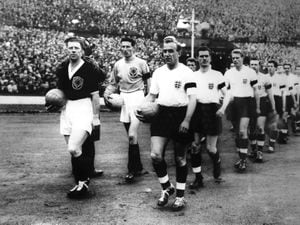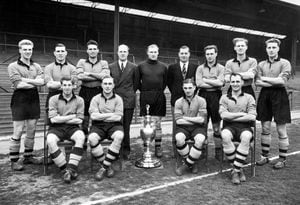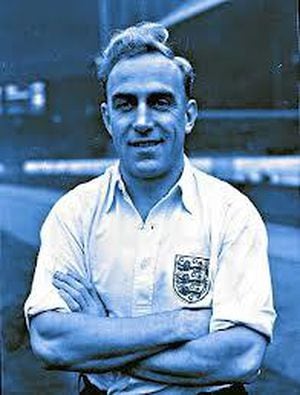Billy Wright is still the greatest
Few players have left a greater legacy with Wolves and England than Billy Wright.

Sitting top of the pile, Wright is a true legend of the game and an old school one-club man.
Later this year, on September 3, it will mark 30 years since the former defender sadly passed away aged 70 and today, February 6, 2024, would have been the icon's 100th birthday.
The early years
Born in Ironbridge, Shropshire, as William Ambrose Wright, football was in his blood. His father Tom played as a winger for local sides.
Billy eventually began his association with Wolves in 1938 when manager Major Frank Buckley brought him in for a trial and played him on the right wing.
In the end, Buckley decided that the teenager was too small to make it as a footballer and Billy's fate seemed to be sealed, until the boss was convinced to keep him around because he was good at weeding the pitch. The rest, they say, is history.

Standing at 5ft 8ins tall, Billy was certainly not a towering presence when he was converted to centre-back, but he persevered nonetheless and made his Wolves debut as a 15-year-old in 1939, after a year-long trial.
Former Express & Star sports editor Steve Gordos discovered that Wright's bow came at The Hawthorns on September 23 that year, a week before what many considered was his debut against Notts County. The defender remarkably scored twice in a 5-3 Wolves win.
Unfortunately for Billy, those games were played after the start of the Second World War when professional football had already been suspended, meaning it did not count as an official fixture.
Wolves continued to play games, however, and Billy signed on as a professional when he was 17 before playing as a 'guest' for Leicester and then coming back to Wolves in 1942.
Billy joined the army in 1943 as a physical training instructor but carried on playing for Wolves and during the conflict he made 111 appearances, scoring 33 times, but every one of those games falls under the 'unofficial' category.

The golden years
The defender finally made his official Wolves debut on January 5, 1946, in an FA Cup third round tie at Lovells Athletic, which was a team made up of workers at the Lovells sweet factory in Newport, Wales. Wolves won 4-2 in the first leg game and eight days later the Welsh side travelled to Wolverhampton, where Billy made his Molineux debut in an 8-1 victory.
Billy was already making a name for himself after shining in wartime matches and was then called up to the England squad on January 19, just two weeks after his official Wolves debut. He played against Belgium, in a 2-0 Three Lions win in the ‘Victory International’ fixture.





